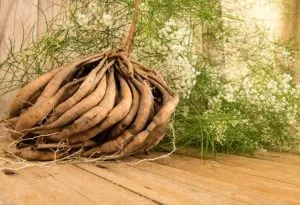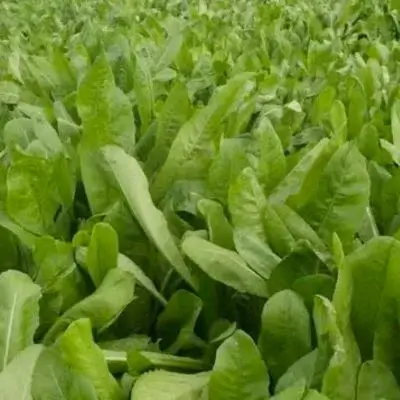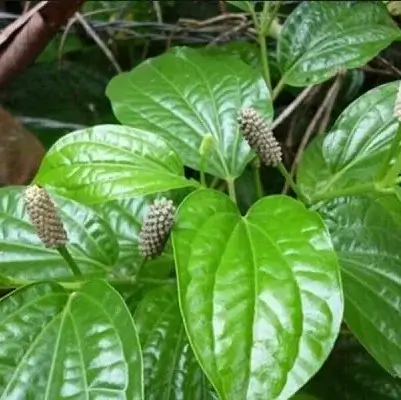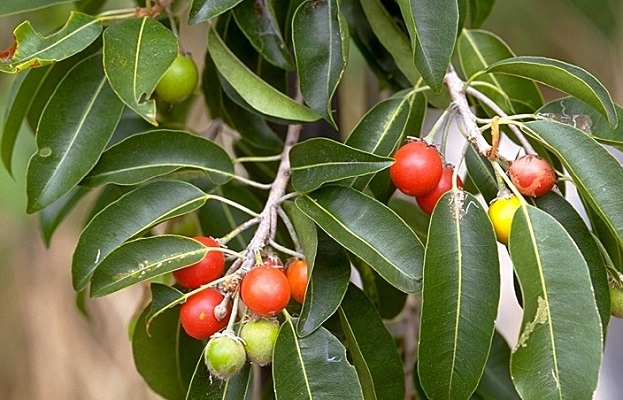On This Page
Satavari – Asparagus racemosus
Introduction
Satavari, commonly known as ‘Wild Asparagus’ is a tall climbing under shrub found through out India. The name ‘Satavari’ indicates the numerous succulent tuberous roots of the plant. The word ‘Asparagus’ means the plant have many intensive strong prickles and ‘racemosus’ indicates the raceme inflorescence of wild asparagus. Satavari is one of the most commonly used herbs in both ayurvedic and allopathic medical field.
Dr.Gupta’s IAFA conducted various studies in Wild asparagus to find out the therapeutic actions of the herb. Our experts have successfully proven the activities like Galactogogue, Tonic, Diuretic and antiallergic property of Satavari. The experienced scholars of IAFA found out that the methanolic extract of Satavari showed a physiological modulation of the stress pathways. The crude hydro alcoholic extract of the plant Asparagus have antioxidant property. The plant contains many phytoconstituents like shatavarin which have anticancerous property. Satavari can also be used a rejuvenative herb. It is one of the main ingredients in many Rasayanas (Rejuvenative medicine). The powder form of Satavari have successful effect in relieving hoarseness of voice. The plant can be also used in case of skin allergic conditions. Studies are also conducting to establish the effect of Satavari in urolithiasis. The stress controlling property of Asparagus is well known and nowadays it is used abruptly in medical field.
Action of Satavari – Asparagus racemosus in Allergies
IAFA experts are putting continuous efforts to prove the antiallergic property of Asparagus. The plant contains phytoconstituents like shatavarin, sistosterol, saponins, sarsapogenin, quercetin, rutin, stigmasterol etc. The decoction prepared using Satavari can be used to relieve Skin allergic conditions caused by Vata and Pitta doshas. The squeezed extract of Shatavari can be applied on the skin along with Ghee and Honey to cure skin allergy.
Vernacular Names
| Hindi name | Satavare |
| Sanskrit name | Shatabdi, Peevari, Indeevari, Vari, Bahu Suta, Mara Bhanjani, Satamuli, Satavirya, Sukshma Patra, Atirasa, Rushyaprokta, Dveepishatru, Dveepika, Urdavakantaka, Narayani |
| English name | Buttermilk Root, Climbing Asparagus, Wild Asparagus |
| Tamil name | Sadavare, Thanneer Vittaan Kizhangu, Thaner Vittan Kilangu, Thaneer Vitaan |
| Bengali name | Satamuli, Dogri: Sainsarbel, Satmooli, Shatavari |
| Marathi name | Shatavari |
| Kannada name | Majjige gadde |
| Gujrati name | Shatavari |
| Punjabi name | chhotta kelu |
| Malayalam name | Sathavari |
| Urdu name | Satawar |
Botanical Name
Asparagus racemosus Willd.
Family
Liliaceae
Ayurvedic Reference of Satavari

Parts Used of Satavari – Asparagus racemosus
- Tuberous Root
Dosage of Satavari – Asparagus racemosus
- Powder (choornam) – 3-6 gm per day
- Juice (swaras)– 10-20ml per day
- Decoction (kashayam)-60-100ml per day
Can be used in men as well.
Medicinal Properties and Uses of Satavari – Asparagus racemosus
- Skin Diseases: acne vulgaris due to hormone imbalance
- Bleeding disorders: menorrhagia, anorectal bleeding, nasal bleeding
- Nervine tonic: antiaging, rejuvenator, helps to improve IQ
- Gym supplement: highly nutritive values, saptdhatu poshak
- Aphrodisiac: improve sperm quality and quantity
- PCOS: heals PCOS when taken in first half of menstrual cycle 1-14 days

Have A Health Issue?
Consult Online
- Dr. Sahil Gupta (B.A.M.S., M.H.A.)
Ayurvedic Allergy Specialist
CEO & Founder of IAFA®
Home remedies of Satavari – Asparagus racemosus
Ayurveda have imparted a lot of home remedies with herbs to the Indian community. Satavari is among the popular herbs used around the globe which is having eminent actions in wide range of conditions.
- In Eye disorders (nethra roga) – The whole plant is collected and crushed well to extract the juice. Intake of this juice cures eye disorders.
- As a Galactogogue (sthanya vardhaka) – Satavari collected and grinded along with milk until a pasty form appears. Then the paste is taken along with one glass of milk and it acts as Galactogogue.
- In Headache (Sira sula) – The roots of Asparagus are collected and crushed well. Decoction made with root parts can immediately cure Headache.
- As a Rejuvenative (Rasayana) – The ghee prepared from the paste of Asparagus is added with the decoction of Asparagus can act as a Rejuvenative. Oral intake of this ghee at a dose of 10-15 ml can strengthen immune power also.
- In relieving pain (Sula hara) – The whole plant is collected and crushed well. Decoction made by adding Tinospora cordifolia to this mixture can relieve pain
- In Hoarseness of voice (Swara bheda) – Honey taken along with the powder of Asparagus can immediately cure Hoarseness of voice.
- In Piles (Arsas) – Decoction made with roots of Asparagus can be used effectively in curing Piles. 60 ml of decoction should be taken daily.
- In Digestive disorders (Grahani) – The raceme inflorescence of the plant is collected and added along with Terminalia chebula to prepare decoction. Drinking this decoction can cure Digestive disorders
Dr. Gupta’s IAFA has been updating the therapeutic actions of all herbs regularly for the past few years. IAFA maintains a strict protocol to ensure the safety of all consumers. The well experienced members of IAFA are consistently working to find out the most effective ways to cure all diseases especially Allergic disorders. All the herbs used in our system are mentioned in the basic textbooks of Ayurveda and are collected by maintaining good quality. Use IAFA products for longevity and to obtain immune power.
Was this Page Helpful?
Read More Articles

Kasini (Cichorium intybus)
Know about the uses, benefits, and medicinal properties of Chicory, Kasini (Cichorium…









